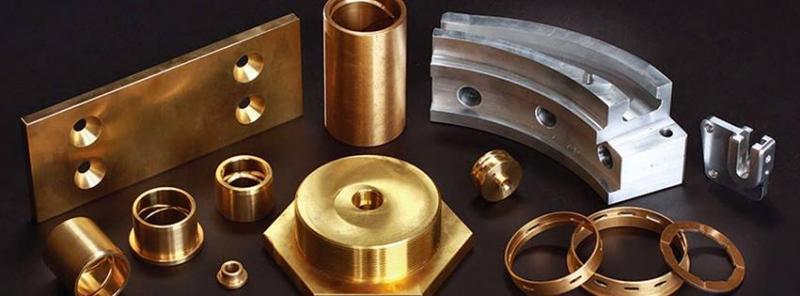Why Use Bronze Bearings?
When it comes to choosing materials for several industrial applications, often time, we find out that we are trading off some least desirable properties for the highly desired ones. When it comes to bearings, certain properties cannot just be traded off as they are properties that helps bearings protect against friction and wears. Bronze alloy happens to contain most of these properties. These properties fall in the four major category of consideration which includes availability of the material, mechanical properties of the material, processing cost and physical properties. So choosing bronze alloys for your bearing application will provide you with some benefits. But first,
What is Bronze?
Bronze in its purest form is an alloy of copper and thin mixed together in certain ratios. The reason for formation of alloys such as bronze is to combine desirable properties of the constituent materials so as to obtain improved functionalities that is not inherent in any of the makeup materials. Several forms of bronzes differing in their strengths and weaknesses are out there to cater for the wide operating conditions obtainable in the manufacturing industries. Examples are leaded tin bronzes, manganese bronzes, etc.
What Are the Benefits of Using Bronze Bearings?
1. They are corrosion resistant: bronze bearing is able to do this because it contains copper. Copper has the ability to resist corrosive environments by forming a protective surface film.
2. Bronze can also withstand High Temperatures: most families of bronze alloys are made to work efficiently even in elevated temperature environments.
3. Good Machinability: in comparison to steel, bronze being an alloy of copper has better machinability. This is highly desired because, it means a wider variety of bearing for just any kind of application.
4. Bronze alloys are also weldable and can be brazed or soldered.
5. Excellent resistance to both friction and wear: Most of the varieties of bronze, phosphor bronze especially has great resistance to friction and wears. This best qualifies bronze as bearing materials.
How Does Bronze Bearings Compare with Brass, Steel and Other Bearings?
1. Bronze provides a smoother surface that can drastically reduce friction.
2. Bronze is more versatile and is made up of many alloys of different compositions, suitable for different specific applications.
3. Bronze bearings have longer lifespans and durability than brass and other bearings.
4. Bronze bearings has a higher capacity to resist the shock, wears and corrosion that is common to machine parts such as bearings.
5. Bronze also has a higher service factor than brass and other bearing materials.
So here we have explained some benefits that come with using bronze alloy bearings in your bearing applications. And it all sums up to strength, high resistance to corrosion, operability at high temperature, and machinability. In case you want to talk to industry experts to learn more, click here.
